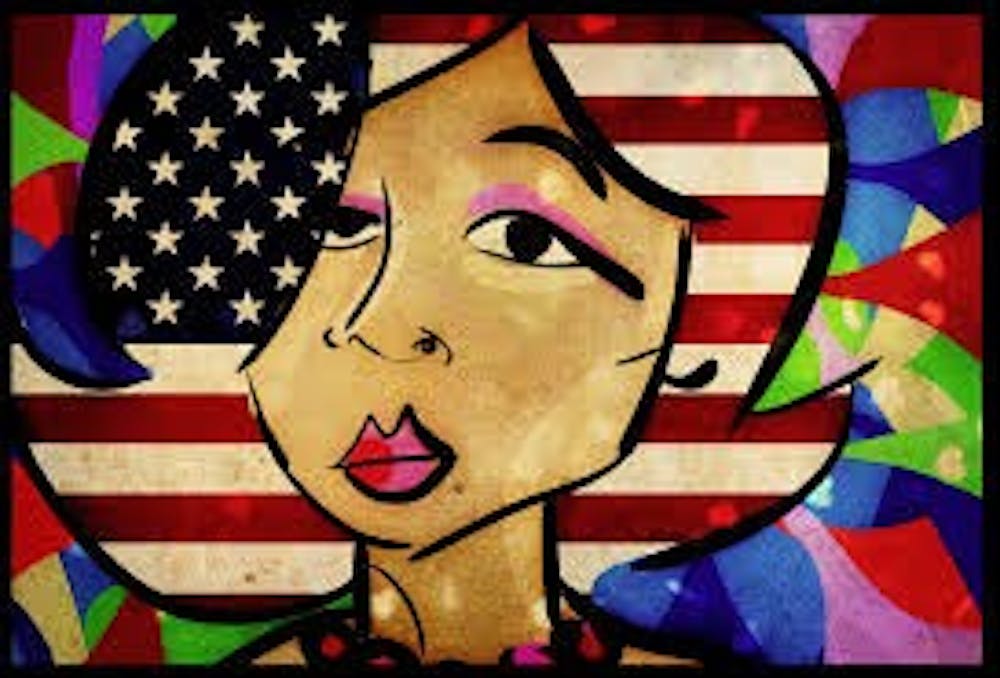“Crazy Rich Asians” has opened up conversation within the Asian-American community about important topics surrounding racial identity, including media representation. Senior columnist Hayley Siegel ’20 recently contributed to this discourse in her latest article, criticizing the movie for being “too Asian.” Siegel suggested that instead of having race play a central role in a character, a racially blind approach would signify real progress for the Asian-American community.
Siegel’s concern that racially-conscious depictions of Asian Americans often devolve into stereotyping is valid. But the proposed alternative —race-neutral characterization — is, ultimately, harmful. Race-neutral characterization suggests that we live in a post-racial society where people’s experiences are all the same, regardless of race. This belittles the struggles that people of color, including Asian-Americans, face on a daily basis — the ones that shape their identities.
There is a critical divide between superficial representation and substantive representation. Superficial representation is diverse casting for the sake of having diversity; it’s only skin-deep. Even though there are characters of color being shown on screen, their stories are not being shared.
Substantive representation, on the other hand, is when a character’s racial identity, and the relevant experiences that come with it, plays a part in creating their story.
For example, the show “Brooklyn Nine-Nine,” a sitcom about NYPD detectives, broaches the subject of racial profiling when Sergeant Terry Jeffords, played by African-American actor Terry Crews, is stopped and frisked by a white police officer in his own neighborhood. This is substantive representation. As a show about the police force, “Brooklyn Nine-Nine” would have been remiss if it had not addressed the issue of racial profiling. Pretending that problems like profiling and police brutality are a non-issue for Black Americans would have placed the show in a bubble, disparate from reality.
“Racially neutral” or “racially blind” characters would be superficial representation. This is harmful because it creates the illusion that racial domination is no longer a problem. While having Asian actors in movies is important, having bodies for the sake of filling a diversity quota is not enough. The stories must be included too.
If the protagonist in “Crazy Rich Asians,” Rachel Chu, were played in a “racially neutral” way, the movie would lose the tension between Rachel’s identities. It would just be about a girl, who happens to be Asian, visiting her boyfriend’s family. But the fact that Rachel is out of touch with her boyfriend’s family, and the crazy rich Asian lifestyle in Singapore, is poignant because the film highlights the gap between her American upbringing and Asian heritage. She is too Asian to be American, and now, too American to be Asian.
For many Asian-Americans, this sense of statelessness and not belonging is relatable. Like Rachel is in the movie, I have been called a banana: “yellow on the outside, white on the inside.” To my Chinese relatives, I am not Chinese; I am “ABC,” an American-Born Chinese.

So, Rachel’s journey is not foreign to me. I have felt that same feeling of isolation — of not ever being enough for either culture. But seeing these experiences mirrored on screen validates the struggles that I, and other Asian-Americans, have had. Maybe we will never fall neatly into one label, but at least we are not alone.
Yes, I will be the first to admit that “Crazy Rich Asians” has its problems with representation. The movie fails to address the lack of darker-skinned Asians in the cast and classism in Singapore, but to expect one movie to do all of this would be impossible.
Like Siegel wrote in her column, I believe that “Crazy Rich Asians” is the first step. However, I believe it is the first step in a different direction than Siegel outlines. Instead of casting Asian actors and actresses into generic roles, there should be more movies and TV shows that focus on the Asian-American experience. From issues of colorism to mental health in Asian communities, there are so many stories that are waiting to be told.
Asian-Americans shouldn’t be expected to “shed their ‘Asian-ness’” in characters, as Siegel suggests. Nor should Asians be expected to assimilate to white culture just to be considered “Americans.” Instead, we should hold on to and be proud of our Asian-ness because it is an integral part of making us who we are.

But doing that should not exclude us from belonging in this American culture, too. There is a beauty in recognizing this duality and embracing it, helping form the backbone of the Asian-American experience.
Dora Zhao is a sophomore from Newtown, Pa. She can be reached at dorothyzhao@princeton.edu.








